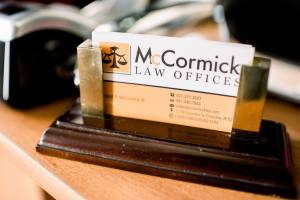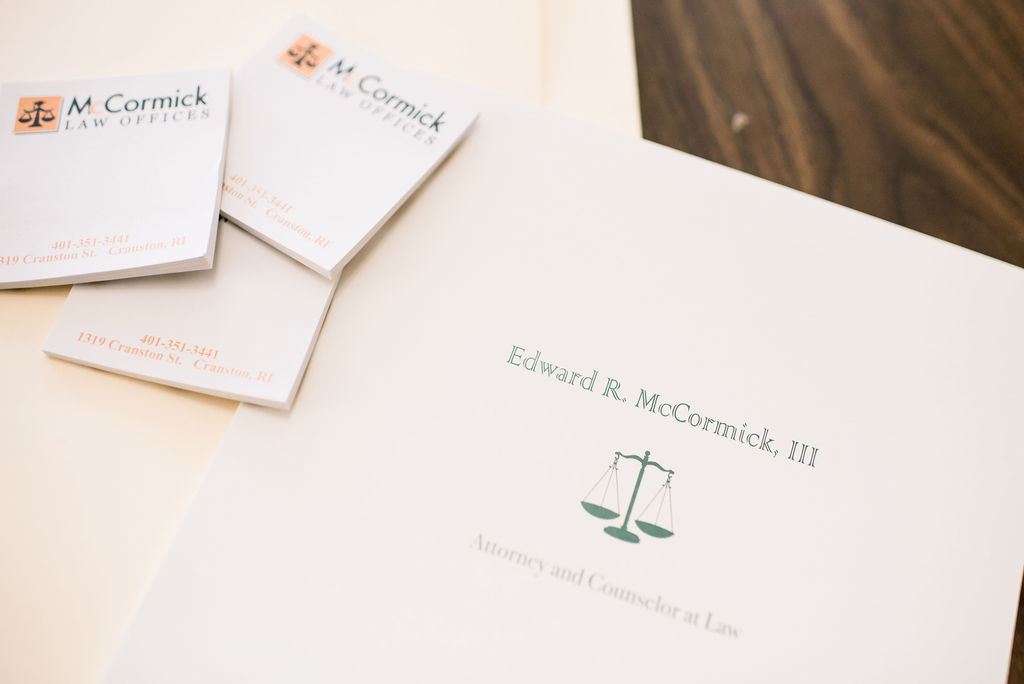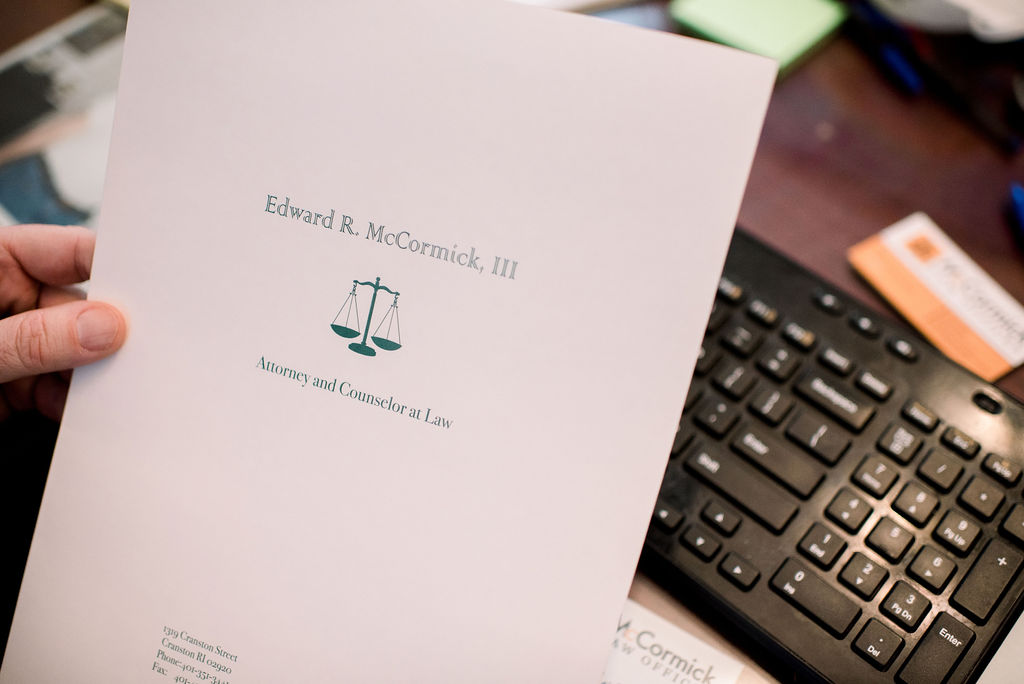When a loved one passes away, families are often faced with not only grief but also the legal responsibility of handling the estate. In Rhode Island, this process is known as probate. Probate court oversees the distribution of assets, payment of debts, and resolution of disputes related to a person’s estate. While some cases are straightforward, others can become complex and time-consuming.
At McCormick Law Offices, we have decades of experience guiding families through probate court in Cranston and across Rhode Island. If you’re wondering what to expect, here’s a clear overview of the process and how working with a probate lawyer can make it less stressful.
When parents separate or divorce, questions about child custody are often the most stressful and emotional part of the process. Every parent wants what’s best for their child, but disagreements can quickly escalate without the right legal guidance. In Rhode Island, child custody is determined by what the court considers to be in the “best interests of the child.”
At McCormick Law Offices, we understand that custody disputes are about more than just legal rights—they’re about your child’s future. If you’re searching for a child custody attorney in Cranston, here’s what you need to know about the process and your options.
What Is Probate?
Probate is the legal process that ensures a deceased person’s debts are paid and assets are distributed according to their will—or, if no will exists, according to Rhode Island intestacy laws.
A typical probate case involves:
- Filing the will with the probate court
- Appointing an executor or administrator
- Notifying heirs and creditors
- Collecting and valuing the estate’s assets
- Paying outstanding debts and taxes
- Distributing property to beneficiaries
Even small estates may need to pass through probate if titled assets (like real estate or bank accounts) were solely in the decedent’s name.
Where Probate Happens in Rhode Island
Each city and town in Rhode Island has its own probate court. If the decedent lived in Cranston, for example, the case would proceed in Cranston Probate Court. Having a Cranston RI probate attorney who understands local court procedures can make the process smoother and prevent costly mistakes.
The Role of an Executor or Administrator
The executor (named in the will) or administrator (appointed if no will exists) manages the estate through the probate process. This is a serious responsibility, requiring careful recordkeeping, timely filings, and compliance with court orders. Many executors hire a probate lawyer to ensure they meet all obligations correctly.
Challenges That Can Arise in Probate
While some estates move through probate quickly, others involve complications such as:
- Will contests: Disputes over the validity of a will or claims of undue influence.
- Creditor claims: Unexpected debts or disputes about what must be paid.
- Family disputes: Disagreements among heirs about property distribution.
- Asset valuation: Complex estates with businesses, real estate, or investments.
These issues can delay probate and create additional stress. An experienced estate administration attorney in Cranston can help resolve disputes and keep the process on track.
In some cases, custody may extend beyond biological parents. Rhode Island law allows grandparents, relatives, or other trusted adults to petition for guardianship if it’s in the child’s best interest. This often arises when parents are unable to care for a child due to illness, addiction, or other challenges.
If you’re seeking to become a guardian, a guardianship attorney in Rhode Island can help you understand the process and protect the child’s welfare.
How Long Does Probate Take in Rhode Island?
The length of the probate process varies depending on the size of the estate and whether disputes arise. On average, probate in Rhode Island takes six months to a year, though contested cases may last longer. Executors must wait for a period of time to allow creditors to file claims before final distributions can be made.
Do All Estates Go Through Probate?
Not necessarily. Some assets bypass probate if they are jointly owned, have named beneficiaries, or are placed in a trust. For example:
- Jointly owned real estate passes directly to the surviving owner.
- Life insurance proceeds go to the named beneficiary.
- Assets in a revocable trust can avoid probate altogether.
This is why many families choose to engage in estate planning before a loved one passes—so probate can be simplified or avoided.
Why Hire a Probate Lawyer?
Probate can be complicated, especially for executors managing estates for the first time. A probate lawyer in Rhode Island helps by:
- Filing court documents correctly and on time
- Advising executors on their legal responsibilities
- Handling creditor claims and tax issues
- Resolving disputes among heirs
- Representing clients in probate court hearings
With legal guidance, you reduce the risk of errors, missed deadlines, or family conflicts escalating into litigation.
How McCormick Law Offices Helps Families
At McCormick Law Offices, we’ve supported Rhode Island families through probate for more than 30 years. Our probate services include:
- Assisting executors and administrators with filings and court representation
- Advising families on asset distribution and creditor issues
- Handling will contests and estate disputes
- Coordinating probate with estate planning for future generations
We focus on reducing stress during an already difficult time, helping you navigate the legal system with confidence and clarity.
Get Support in Probate Court
Probate is a necessary legal process, but you don’t have to face it alone. With the guidance of McCormick Law Offices, families in Cranston and across Rhode Island can move through probate with fewer delays, disputes, and frustrations.
To learn more about our probate services, visit our probate and wills page or contact us today to schedule a confidential consultation.
Legal Disclaimer
The information provided on this website, including all blog posts, resources, and service descriptions, is for general informational purposes only and should not be construed as legal advice. While McCormick Law Offices strives to keep content accurate and up to date, the law is constantly evolving, and the information presented may not reflect the most recent legal developments or apply to your particular circumstances.
No attorney-client relationship is established by viewing this website, filling out a contact form, or engaging with our content. An attorney-client relationship with McCormick Law Offices is only formed through a signed written agreement.
You should not act or rely on any information on this site without first consulting a qualified attorney regarding your specific legal matter. Any links to third-party websites are provided for convenience only and do not imply endorsement or responsibility for their content.
McCormick Law Offices serves clients primarily in Rhode Island and Massachusetts. Legal services are provided in accordance with the applicable laws and ethical rules of these jurisdictions.
If you need legal advice or representation, please contact our office directly to schedule a confidential consultation.







